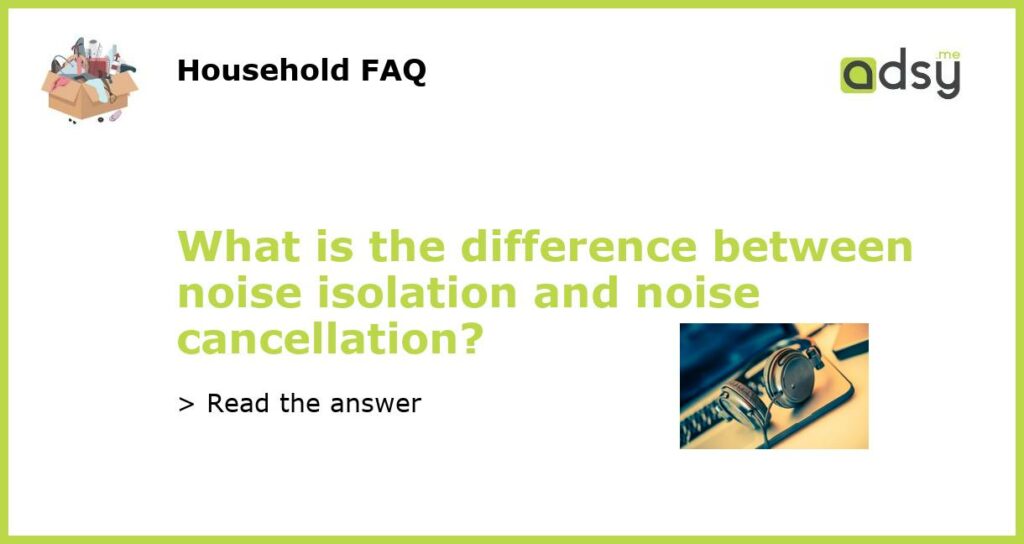Noise Isolation vs Noise Cancellation: What’s the Difference?
If you’re in the market for a new pair of headphones, you’ve probably come across the terms “noise isolation” and “noise cancellation.” While these terms may seem interchangeable, they actually refer to two different technologies that serve the same purpose: to block out unwanted outside noise. So, what’s the difference?
Noise Isolation: How Does it Work?
Noise isolation, sometimes referred to as passive noise reduction, works by physically blocking external sounds from entering your ears. This is typically achieved through the use of tight-fitting ear cups, which create a seal around your ears, or by using in-ear headphones that fit snugly inside your ear canal.
The idea behind noise isolation is simple: if you can prevent external sounds from getting in, you’ll be able to hear your music or podcasts more clearly, without having to crank up the volume to compete with outside noise. The downside is that noise isolation won’t completely eliminate all external sounds, and can be uncomfortable for long listening sessions.
Noise Cancellation: How Does it Work?
Noise cancellation, on the other hand, uses advanced technology to actively cancel out external noise. This is typically achieved through the use of small microphones on the headphones, which pick up ambient noise, and then create an inverse sound wave to cancel it out.
The result is a much more effective reduction in external noise, without the need for tight-fitting ear cups or in-ear headphones. Noise cancellation is particularly effective at cancelling out low-frequency, droning noises such as airplane engines or traffic noise.
Which is Better?
So, which technology is better? Well, it ultimately comes down to personal preference. If you’re looking for a simple, inexpensive solution to block out outside noise, noise isolation will do the trick. However, if you want the best possible noise reduction, particularly in noisy environments, noise cancellation is the way to go.
That said, noise cancellation can be more expensive than noise isolation, and requires batteries or a power source to work. So, if you’re on a tight budget, noise isolation might be the better option.
The Bottom Line
Ultimately, the choice between noise isolation and noise cancellation comes down to your specific needs and budget. Both technologies serve the same purpose of blocking out unwanted outside noise, but they do so in different ways. Ultimately, the best way to decide which technology is right for you is to try out both types of headphones and see which one works best for your listening needs.






